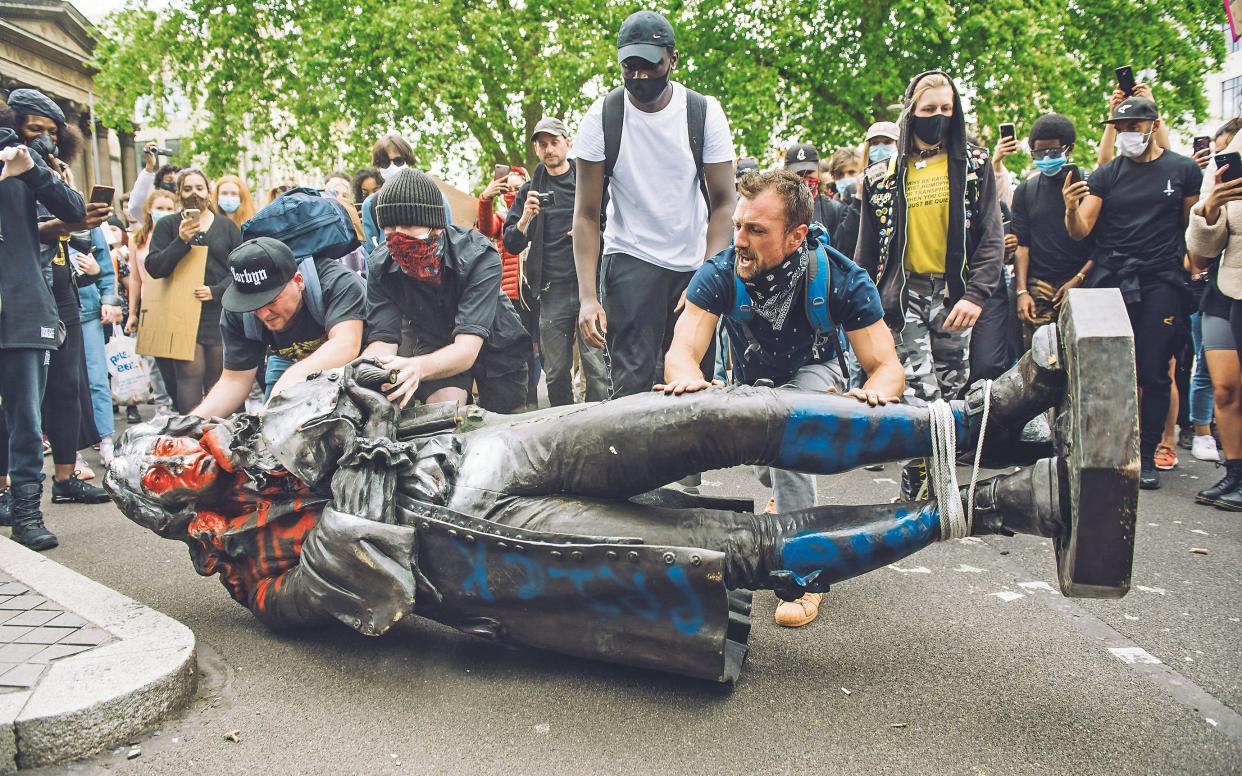Statue protection will allow decisions to be made 'through calm, informed debate instead of caving into the loudest voices'

The new statue protection will allow decisions to be made "through calm, informed debate instead of caving into the loudest voices", the former equalities chief has said.
It comes as every statue will be given greater protection from “baying mobs”, and road names could be saved from the “revisionist purge” of Labour councils under tough new laws outlined by the Communities Secretary, Robert Jenrick.
Trevor Phillips, the former chairman of the Equality and Human Rights Commission, said it was “welcome to see ministers showing the courage to provide a space to debate how best to mark the past”.
He said: “It may move many to study and reflect on their own histories before rushing to judgement; and a chance to decide through calm, informed debate instead of caving into the loudest voices.”
Mr Phillips, chairman of Policy Exchange’s History matters Project, added that by enabling such a space for debate, “it’s even possible that, for once, many of those who are most impassioned might take the chance to learn more of the background and to listen to the opinions of those they claim to be defending”.
Writing in The Sunday Telegraph Mr Jenrick outlined that he would change the law so that historic statues, plaques, memorials or monuments cannot be removed without going through a formal planning process.
The law is also being changed so that controversial statues and monuments should be best explained and contextualised, not taken and hidden away, in a move that will further protect them.
He is also looking at ways to stop Left-wing councils from unilaterally replacing street names linked to the British Empire with modern versions, without the approval of a clear majority of people living in the streets affected.
It comes as Policy Exchange documented more than 150 cases of UK history at risk of being erased, including the Cecil Rhodes statue at Oxford University, the statue of Winston Churchill on Parliament Square and the Robert Clive statue in Shrewsbury.
Last year Marvin Rees, the Bristol Mayor, told MPs that the Colston statue row was really about unaffordable housing and gentrification.
He said the recent Black Lives Matters protests which led to the toppling of the 17th-century slave trader Edward Colston, were not “all about the Colston Statue”, and said he believed “the Colston Statue in many ways became a focal point for other frustrations with life in modern Britain.”

